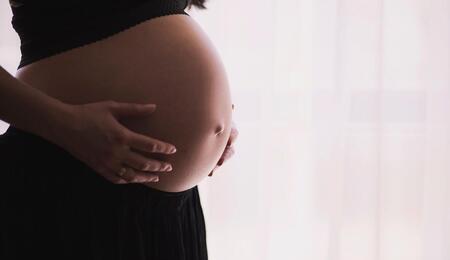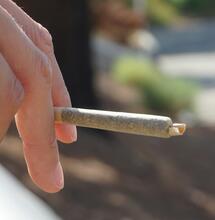Is It Okay to Use Cannabis While Pregnant?

The first instinct says no, it's not okay. But we've all had that one friend who was okay with a few puffs even though she was eight months into her pregnancy and also later on when she was still breastfeeding. Like, if you are OK with a glass of wine, there is no harm in taking a little weed, right? However, the official stance of health authorities is that pregnant women should refrain from using any substance, including cannabis, while carrying and breastfeeding.
The marijuana market has rapidly grown in the U.S. over the last couple of years. Most states allow the medicinal use of marijuana, and around 20 states have launched legal recreational sales. Cannabis has been marketed directly to pregnant women to help combat morning sickness. That may explain why a growing number of pregnant women, especially young moms aged between 18 and 25, reach out to cannabis to treat not only morning sickness but also other health issues that may arise with bringing a new little human on this world, anxiety for example.
Researchers recently studied recommendations that cannabis dispensaries in Colorado gave to pregnant women. They found that almost 70 percent of vendors touted products to treat morning sickness, and close to 35 percent told women that marijuana is safe to use while carrying a baby in the womb.
Another study suggests that women with severe nausea and vomiting were four times more likely to use marijuana than women without nausea and vomiting. Still, it remains unknown if their morning sickness led them to use marijuana or if marijuana itself aggravated their condition in the first place.
The official position of the American College of Obstetricians and Gynecologists advises doctors to screen patients for marijuana use and encourage users to quit while carrying and breastfeeding, even if marijuana has been prescribed for medicinal purposes before pregnancy. Medical professionals fear potential adverse effects of cannabis use on the fetus.
What we know from scientific research is really not that much. In the 1980s, it was found that THC can pass through the placenta to reach the fetus. More recently, it has been confirmed that THC is secreted in breast milk up to six days after the last use. The concerns about the health effects of marijuana during pregnancy and lactation mainly revolve around these two findings.
Another argument that is also used is that babies exposed to cannabis in utero reportedly tend to have lower weight at birth. But here, too, there are some unclear aspects. Scientists still cannot tell if the correlation between smoking and lower birth weight owes directly to marijuana or because of smoking in general, including tobacco.
Some of the undertaken research is encouraging, so to speak. For example, no evidence has been found to prove that babies of moms who've used marijuana are more likely to need intensive medical care after birth. There is no correlation between cannabis and sudden infant death syndrome (SIDS) either, that is, the sudden and unexplained death of an infant younger than one year.
Decades of studies also suggest that cannabis use while pregnant does not impair the child's cognitive skills or academic achievements later in life.
Overall, research and observation suggest that prenatal cannabis exposure doesn't appear to affect the child's physical development in any adverse way. The research on whether it could affect children's cognitive development is ongoing, although there are some indications of no negative effect in this respect either.
The recent reform bill signed by president Biden is supposed to expand medical research and possibly remove marijuana from the list of Schedule I substances. Hopefully, all of it will lead to more efforts to explore the link between cannabis and pregnancy.











